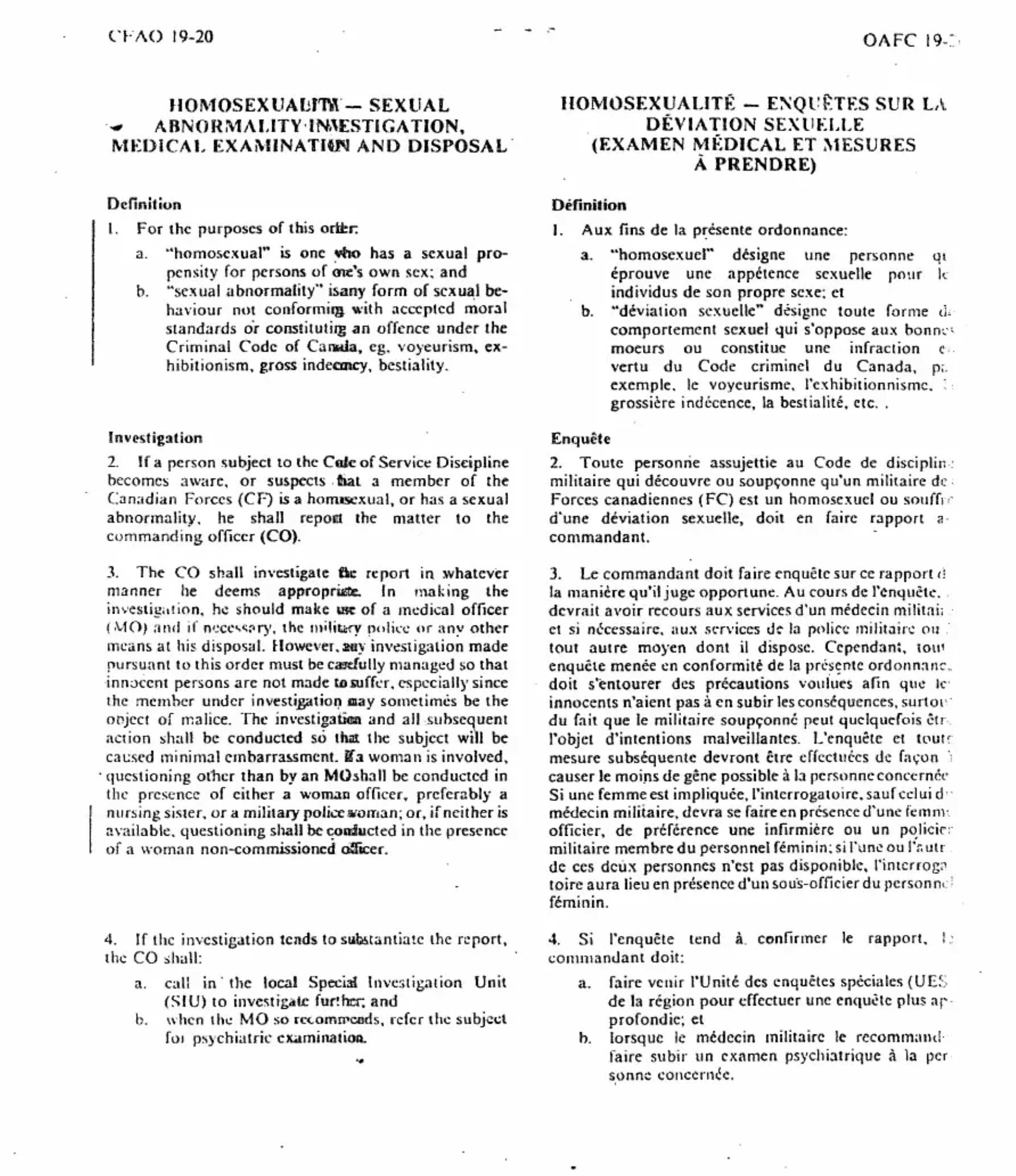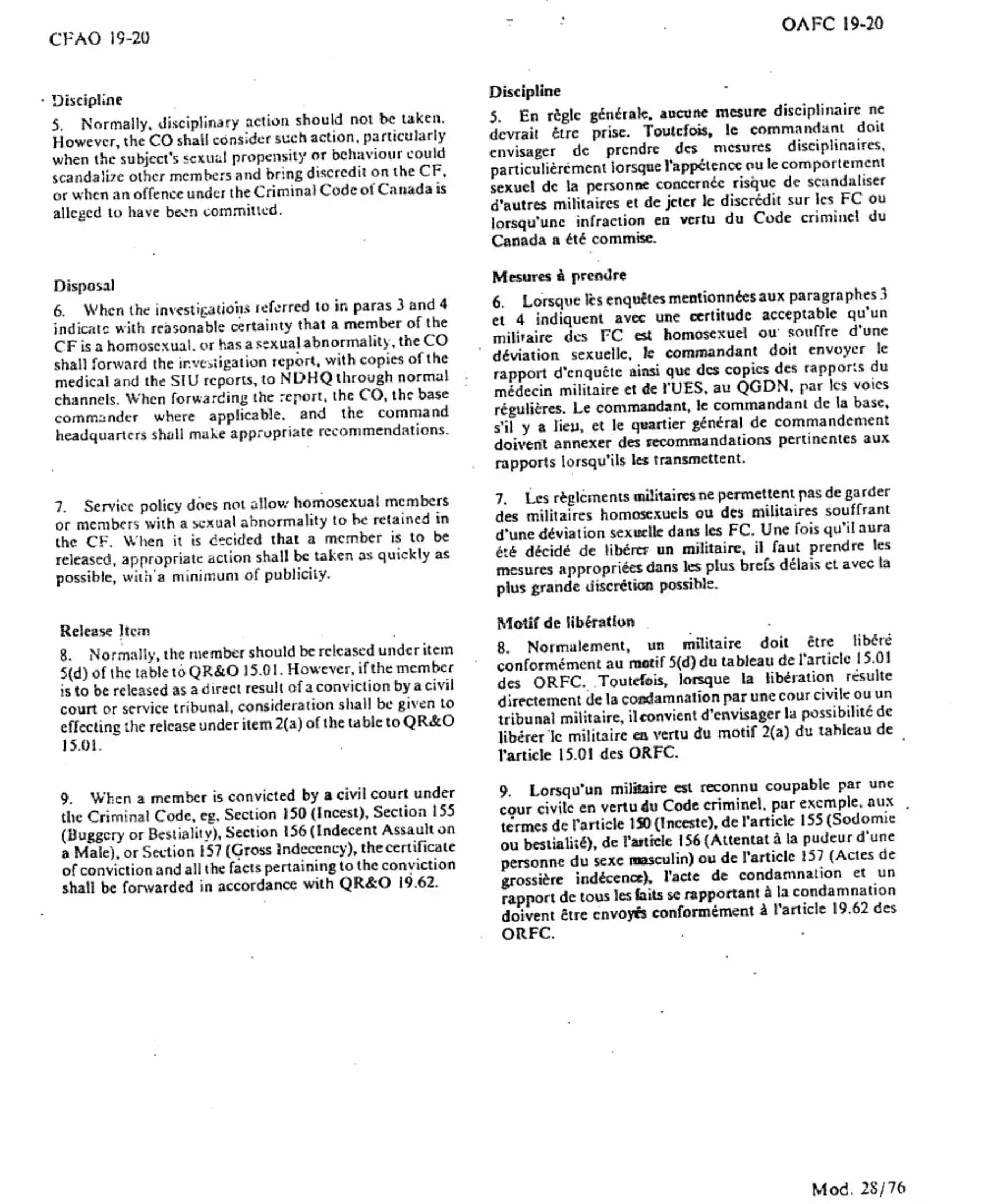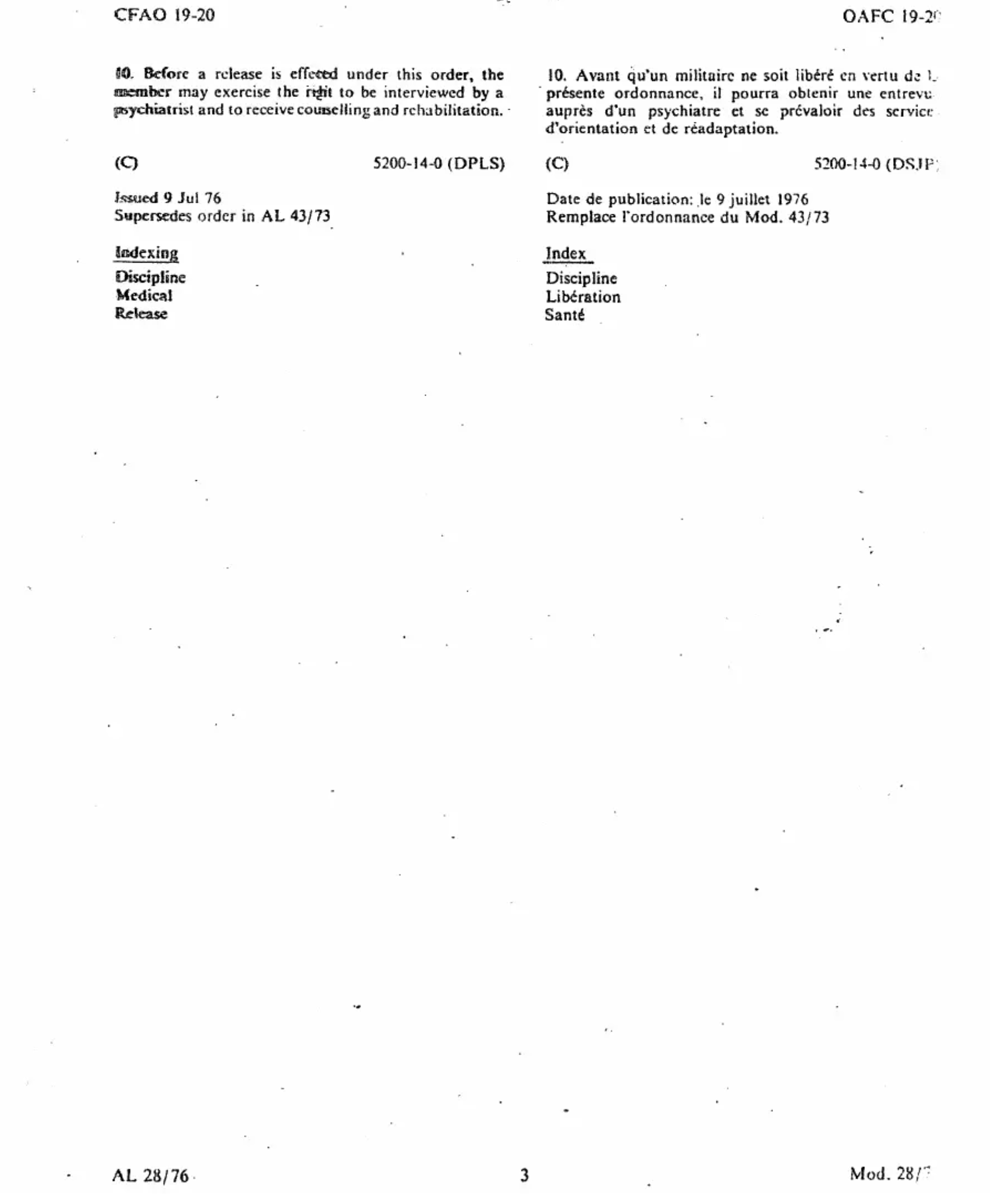Beginning in 1967, the Canadian Armed Forces (CAF) implemented Canadian Forces Administrative Order 19-20 Homosexuality – Sexual Abnormality Investigation, Medical Examination and Disposal (CFAO 19-20) which required anyone who suspected another servicemember of being a homosexual or having a sexual abnormality to report them to their commanding officer (CO).
The CFAO 19-20 included the following definitions for homosexuality and sexual abnormalities:
- a. homosexual” is one who has a sexual propensity for persons of one’s own sex; and
- b. “sexual abnormality” is any form of sexual behaviour not conforming with accepted moral standards or constituting an offense under the Criminal Code of Canada, e.g. voyeurism, exhibitionism, gross indecency, bestiality.
Once an accusation was made, the CO was expected to investigate it with the help of a medical officer and, if necessary, the military police. Should the accusation prove truthful, the CO was required to call in the Special Investigations Unit and, if the medical officer recommended, “refer the subject for psychiatric examination”.
CFAO 19-20 further outlined the requirements for how to handle the discipline of anyone found to be a homosexual. While it stated that there should be no disciplinary action taken, it did explain that COs were to consider how the “subject’s sexual propensity or behaviour could scandalize other members and bring discredit on the CF [Canadian Forces]….” Two paragraphs later, CFAO 19-20 stated that homosexuality was grounds for immediate release from the CAF because “Service policy does not allow homosexual members… to be retained in the CF.”
While the Criminal Code of Canada was amended to partially decriminalized homosexuality in 1969 the CFAO 19-20 policy remained active in the CAF until it was officially repealed in 1992 after a successful court challenge by a previous CAF member, Michelle Douglas.
Original post from:


